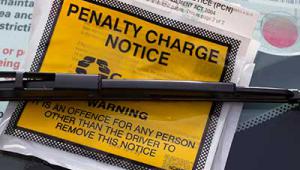A report published today by Cardiff University’s Wales Governance Centre analysed Wales’ public spending, public revenues and overall fiscal balance using the same methodology applied by the Scottish Government for the annual Government Expenditure and Revenue Scotland (GERS) report and a similar exercise that is done for Northern Ireland.
The multi-year analysis – dubbed GERW – revealed that Wales’ net fiscal balance improved in recent years from a deficit of £15.8bn (29.2% of estimated GDP) in 2010/11. This was because revenues grew more quickly than expenditure, the researchers said.
Total spending in Wales in 2014/15 was £38bn, approximated £12,300 per person, more than the £11,400 spend in the UK as a whole. Revenues for the same year were estimated at £23.3bn, around £7,500 a head and considerably below the UK average of £11,400.
At 24% of GDP in 2014/15, the Welsh deficit was higher than the UK’s (4.9%) and Scotland’s (9.7%).
Commenting on the findings, report author Ed Poole said that, although transfers between richer and poorer territories within a state were not unusual, the size of the Welsh deficit represented a “very substantial gap” between tax collected and money spent.
“The GERW 2016 figures lay bare the scale of the challenge facing Wales as public services increasingly come to rely on own-sourced taxes such as the new Welsh rates of income tax and stamp duty,” he said.
Professor Richard Wyn Jones, director of the Wales Governance Centre, added that the absence of a GERS-style exercise for Wales had meant there had been little discussion of the state of its public finances.
“GERW addresses this longstanding need for better data and information on Wales’ relative financial position,” he said.
“Not only that, but with tax devolution likely to be one of the defining stories of the fifth assembly, this report also serves to highlight the challenges that lie ahead, not least as Welsh politicians seek negotiate with the Treasury over the key question of how tax devolution is implemented: a negotiation in which, as is made clear in GERW 2016, there are literally hundreds of millions of pounds at stake.”
Last month, the Welsh Assembly passed a bill to allow for the collection of the first Welsh taxes in 800 years – land transaction tax and landfill disposals tax.
However, today’s GERW report noted the revenue stream these taxes replace collected raised £4.2bn in 2014/15, around 18.1% of total current revenue in Wales.
It said that, compared with non-devolved taxes such as VAT that have grown strongly, these revenues have been relatively stagnant.



















